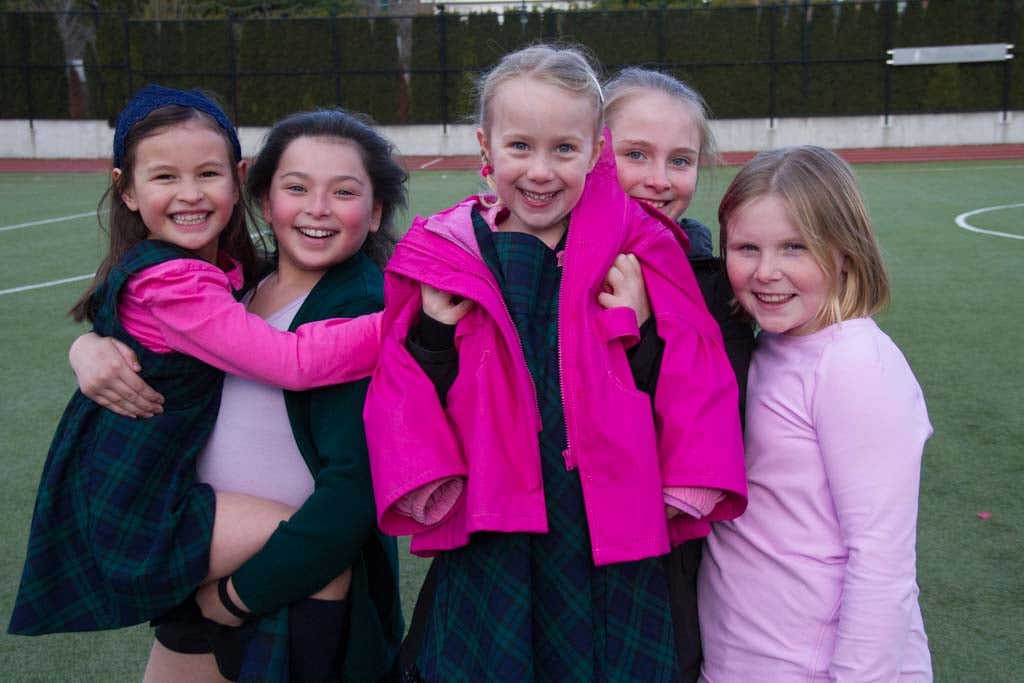 On October 4th, new parent, award-winning medical doctor, researcher, expert on human neuroscience and bestselling author, Dr. Shimi Kang joined us for the first Tiger Talks of the year. Visit Dr. Kang’s website for more information about her.
On October 4th, new parent, award-winning medical doctor, researcher, expert on human neuroscience and bestselling author, Dr. Shimi Kang joined us for the first Tiger Talks of the year. Visit Dr. Kang’s website for more information about her.
For those of you who were not able to attend that evening, we asked Dr. Kang if she would answer a few questions that are often asked by parents.
Q. My daughter is in the Senior School now so I don’t really have to be as involved. What does it look like to be a dolphin parent as your daughter gets older?
This is a crucial time to stay connected while guiding your daughter towards increasing independence.
The adolescent brain undergoes massive pruning and re-wiring and does not finish it’s “puberty” until roughly age 22 to 25. During this time, teens are biologically rewarded to take risks, seek new experiences, and establish strong social connections. I encourage parents to be a “firm and flexible” Dolphin Parent regarding these specific hardwired changes. For example, be flexible as your daughter explores taking healthy risks and seeking new experiences through extracurriculars, academics, and sports while maintaining firmness regarding values and establishing a positive, healthy social network.
Q. How do you manage when one parent wants to be the “jellyfish” and the other parent has to be the “tiger”?
We actually covered this example in the talk! A powerful tool to help facilitate change and motivation is the dolphin KEYS.
This is an evidence-based communication strategy based on the collaborative interpersonal style followed by a statement of empathy, autonomy, and success. When applied consistently, this three sentence technique will help move individuals towards each other in a positive, progressive way.
As I stated during my talk, The Dolphin KEYS, parenting example, and science behind it are posted on the Dolphin Kids website https://www.dolphinkids.ca/dolphin-kids-resources
For comments, Facebook page https://www.facebook.com/dolphinkidsachievement
Q. What do you suggest you do when your daughter comes home feeling wronged? What do you do? What should be the response?
It is important to first identify what type of social conflict has occurred.
Bullying is defined as repetitive conflict with an intent to harm usually associated with a power differential. This should be addressed immediately and collaboratively with your daughter to include problem-solving that may involve her peers, other parents, and or the school community ie. cyberbullying.
Mean behaviour is generally not repetitive, with no intent to harm, but is inappropriate that may occur spontaneously. Appropriate recognition and an apology for any inappropriate comments or behaviours should be made followed by a quick resolution ie An argument over a political issue in class.
Normal peer conflict is common and a necessary learning tool. These are situations where peers may not get along and/or have differing opinions. Guide your daughter towards respectful communication, healthy assertiveness, and conflict resolution.
Q. What are the barriers for today’s girls?
A key take away from my talk is that although tremendous progress has been made reducing external obstacles; increasingly the greatest barriers to girls’ health, happiness, and achievement are internal ie anxiety, depression, negative thinking, perfectionism, and low self-esteem/confidence. Thus, it is important for parents to focus on their daughter’s internal world. This involves teaching and training positive mindset, social skills of healthy assertiveness and collaborative communication, and stress management tools such as practicing mindfulness, breathing, and gratitude. These are just a few of the proven and powerful activities to enhance and optimize our daughters potential for health, happiness, and achievement.
Q. How do we help our daughters develop intrinsic motivation?
Intrinsic motivation comes from the neurochemical dopamine. Dopamine is released intrinsically during times of autonomy, mastery, and most of all contribution. “Studies on the psychology of motivation show that we’re motivated when three criteria are fulfilled: autonomy, mastery, and purpose.9 Autonomy is the desire to direct and control our own lives. It comes from internal control and parents instill it through balanced authoritative parenting. Mastery is the desire to keep getting better at something that matters to us. It comes from finding and developing one’s passion through play. Curiosity itself is an “inverted U-shaped drive”10—it piques us to overcome challenges and continually stretch ourselves towards mastery. Purpose is our desire to do something that matters in the world—to engage in something beyond ourselves. It comes from our desire to connect and contribute.” – from The Dolphin Parent: How to Raise Healthy, Happy, and Self-Motivated Kids



